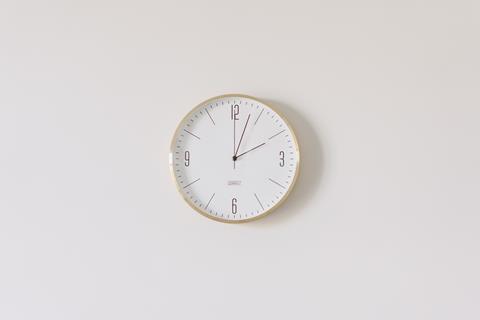Two women in their 40s share their experience of freezing their eggs

Kath’s story
There seems to be an odd silence around fertility – or lack thereof – until a deep desire for children is met by the reality that our bodies don’t always do what they are ‘meant’ to. It wasn’t until I was in my 30s that I began to hear more stories of women’s journeys through infertility, which seemed unsettlingly common, and other, more rare, painful experiences of reaching the end of childbearing age still single.
As I approached 40, I increasingly struggled with feelings of disappointment towards God in the area of relationships. I think this is a given for any unmarried woman in her 30s. It can be one of the least seen, least understood and least acknowledged sources of anguish and grief for women in this stage of life.
It seems the Church doesn’t know how to walk with women in this season; this has certainly been my experience. It can lead to a sense of isolation, making it all the more important to have the company of immersive friendships.
What if egg freezing is part of God’s journey for you?
When I began to consider egg freezing, I lent on these honest relationships, including a female elder at my church whom I knew I could be honest with. I needed to feel confident that freezing my eggs would align with God’s will and his word. I saw no moral or biblical implications as part of the egg freezing process, but knew that if I ever went through the process of IVF in the future, I would need to be committed to give birth to whatever life or lives might be given.
The Lord has spoken so clearly to me about the intentional way he builds family; that he has generational purposes for us, even if they look significantly different from what we initially imagine. Having frozen my eggs gives me the option of having a child alone (via a sperm donor) but I wouldn’t want a child of mine to not know their father; the process would be for my benefit not theirs. And at the moment, I would feel too much grief to donate my eggs and have someone else bear my children, though I may think of doing this in time.
I saw no moral or biblical implications as part of the egg freezing process
For now, I lean into God’s goodness, having faith in his ability to provide for me relationally. I am confident that I will continue to experience the gift of community and family but know it takes patience and perseverance each day, fuelled by gratitude. It is gratitude that can carry us through disappointment and out the other side.

Maggie’s story
What does it mean to step out in faith?
For years I had a ‘Sarah mentality’. Sarah, wife of Abraham, who was barren but trusted in God’s promise of a child. Surely this is it; faith at its finest. I should wait on God. If it’s his will, I will have the child I long for. Let things take their natural course…wait and trust.
As I approached my late 30s – single for nearly a decade following a divorce – I began to wonder if my waiting on God could (and should) also require action. It seemed obvious to my friends, Christian and non-Christian alike, that I should be active about finding a husband. “Make sure you’re meeting people,” I was advised. “Get on dating apps.” And I was. For years. I trusted God but I also stepped out. My faith was active when it came to meeting someone. So, what about trusting God for a baby?
Did you know that we are born with all our eggs?! It’s such a fascinating fact, but a tad unsettling for us as we get older. “What’s happening to my eggs? How are they?” I began to wonder, considering whether I should protect them.
No one knew that I was beginning to think about egg freezing, but then two friends independently brought the subject up. The first had conceived her three children via IVF. She’s a doctor herself, and frequently sees God working through medicine. “My kids wouldn’t be here without medical intervention,” she reminded me, “what if egg freezing is part of God’s journey for you?” As I pondered this question it was joined by another, equally profound; “Have you actually asked God if you should freeze your eggs?” the second friend asked a few weeks later.
I hadn’t. I went away and prayed; I actually asked. And I was overwhelmed with God’s loving confirmation. I had a deep peace that he was with me in this; he knew how much I longed to carry my own child. I didn’t want to make this decision out of fear, but out of a loving relationship with God.
The cost of egg freezing is significant – around £6,000 depending on the clinic, with ongoing monthly or annual freezing costs. A friend pointed out how much I spent every year to insure the valuable equipment I need for work…what about the value of my eggs? For me, the language of insurance was so helpful; there’s no guarantee, but I’d have done everything I could to protect what I have. I trusted God would provide the money I needed, and miraculously he did.
When the process started I was pumped with hormones to produce lots of eggs. I felt bloated but otherwise fine. And the retrieval itself, although invasive, was successful and resulted in 13 ‘good’ eggs. It was the recovery that was more intense than I’d expected.
The drug I’d been given to release the eggs led to heavy menstrual bleeding post-procedure. I felt like I was haemorrhaging, and was grateful for the emergency line I had to the clinic, and the support of close friends. This part was an ordeal, but it was worth it. I have no regrets.
Since freezing my eggs I’ve met someone, and we’re keen to try for kids naturally once we’re married, while also both feeling called to fostering and adoption. I long to carry a baby, but through the process of egg freezing I’ve also gone on a journey of letting go; surrendering to the reality that I may not have a biological child. If I were to, the child would be a gift from God. I know I will be a mother, one way or the other!
Did you know…
The first part of the egg freezing process is the same as IVF. Drugs are given to boost your egg production and help the eggs mature. When they’re ready, the eggs are collected under general anaesthetic. They are then frozen and stored.
The process usually takes two to three weeks to complete.
Most women will have about 15 eggs collected.
The whole process of egg freezing, including storage and later thawing and transferring to the womb, can cost between £7,000–8,000.
Success rates for frozen eggs can be quite low, but technology and understanding are constantly improving. The latest research (from 2016) showed that one in four IVF treatments using a patient’s own frozen eggs were successful.
Since new legislation was passed in 2022, frozen eggs can be stored for up to 55 years.
For further information visit:




























No comments yet